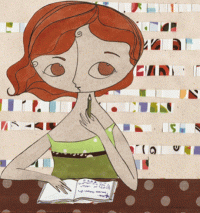Transformation Begins With Reflection: How Was Your Year?
The end of the school year can bring up a lot of feelings for a lot of people working in schools. As we clean out our classrooms, we may come across half-finished projects, stacks of papers we never got around to grading, and files of material that we'd intended on using for a unit on something or another.
Of course, we also see the evidence of our student's success and hard work, but at least for me, it was those other piles that made me feel conflicted. I'd focus on what hadn't happened and what didn't go well. I felt disappointed in myself and reluctant about beginning the following year.
That's not what I do at the end of the year any more. Now I direct my energy and attention on what worked, what went well, and what I feel was successful. I've discovered that this strategy is critical to build my emotional resilience. One of the only things in life that I have control over is how I tell my story -- how I interpret my experiences and make sense of them. If I create a story that is one of learning, growth, and empowerment, I feel better.
So how are you telling the story of this school year?
Life is what you make of it. We design our lives, in part, by the stories we tell. Especially when we experience change, and perhaps change that we didn't initiate and that initially doesn't feel good, we still get to tell a story about it. We can tell a "victim story" such as: Our district always does this to us, they end programs that are going well and then dump new ones on us that aren't what our students need. Or can we tell another story: Change is an inevitable part of working in a school system. Which one of these interpretations feels better to you? In which story might you have more agency?
We create our realities by the stories we tell. We can tell stories about the past and we can design stories to move into.
I think and write and talk a lot these days about transformation -- of individuals and systems. I believe that in order to participate in school transformation, I must attend to my personal transformation. A turning point in my life was when I began to conscious work on transforming my own stories which weren't serving me -- they weren't energizing me to get up in the morning and go to school. As I began reinterpreting my reality, my daily life changed, the conditions of my work improved, and I felt happier. I went from: This district is hopeless; it's so messed up, and there's no way I can do meaningful work in it, to: I can find a place in this district where my work is valued, appreciated, welcomed, and where I can effectively work towards transformation.
Changing my story took time and practice. And it changed my reality.
Here's how I'm narrating this last year in the Oakland Unified School District, where I've worked for 18 years: I just had the best year I've ever had in OUSD! I learned so much and grew tremendously as an educator, coach, and leader. I worked with amazing colleagues -- I'm so grateful for them. I was supported and inspired and my work was well received. It was a hard year (I worked a lot!) but it was worth it; I can see so much evidence of the positive impact I had on kids.
How are you telling the story of your year?
I also believe in designing my future. I often have ideas (visions, really) about what I want to do next and where I want to go and what kind of work I want to do. I unlock all constructions around these visions and let my mind wander anywhere and everywhere -- the expansiveness to dream is freeing. When the ideas are clear, I move on them. I make them happen.
What kind of life are you creating? Where are you going to do next?
